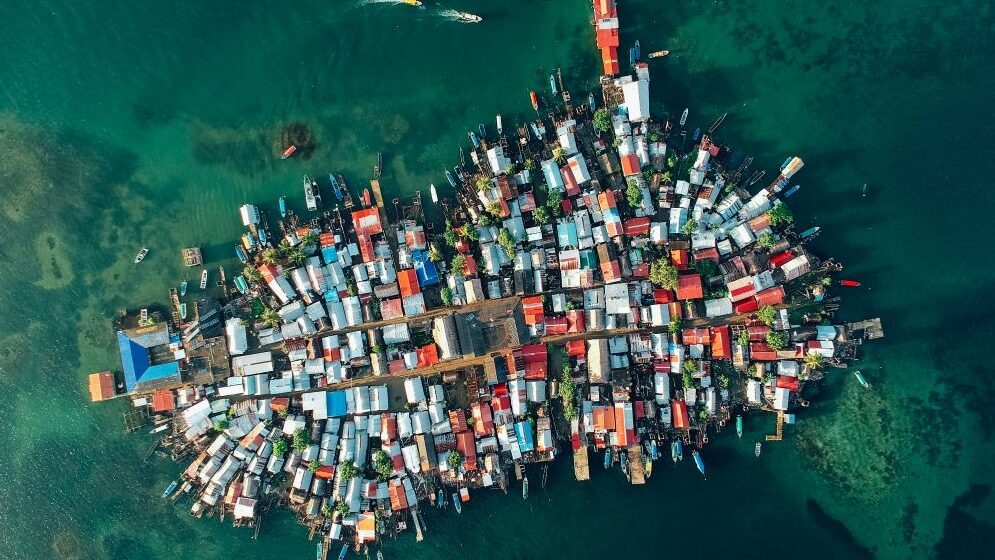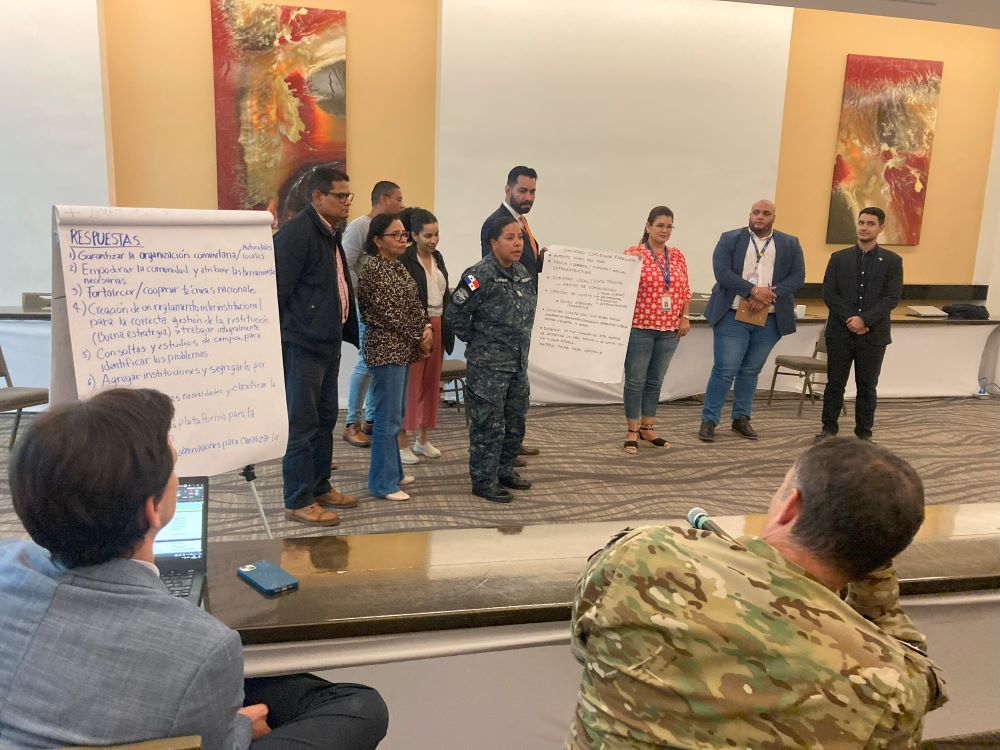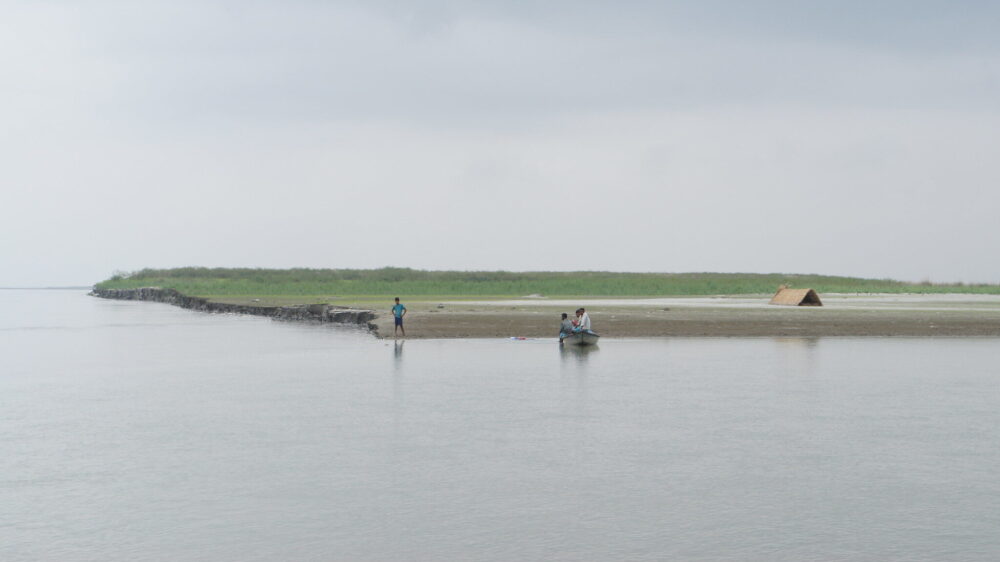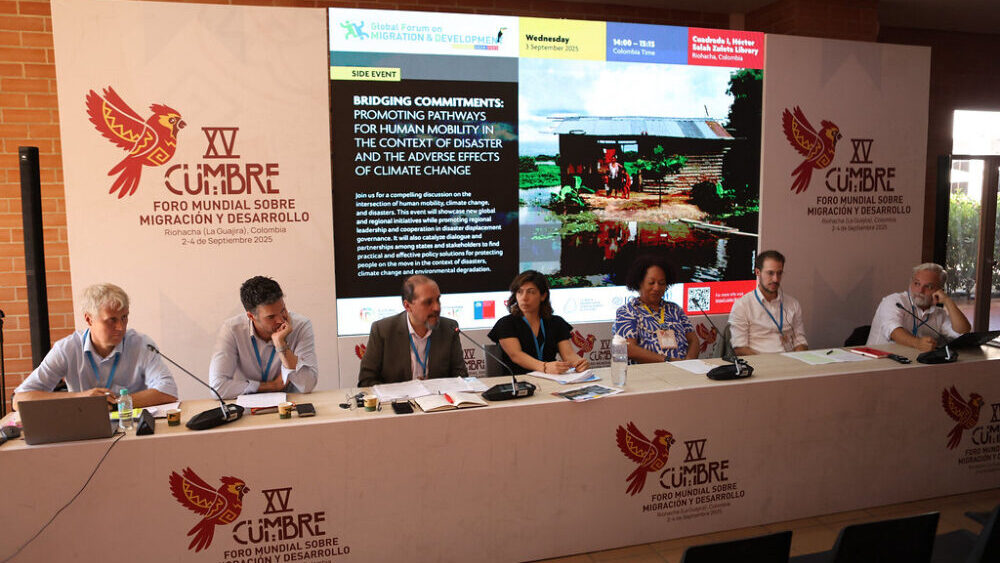Panama Leads the Development of Normative Methodologies and Coordination Mechanisms to Address Displacement in the Context of Disasters and Climate Change

Planned relocations are defined as processes in which “groups of persons move or are assisted to move away from their homes or places of temporary residence, are settled in a new and safer location, and are provided with the conditions for rebuilding their lives within their national borders” (Guidance on Planned Relocations, Brookings, Georgetown University and UNHCR 2015).
Day 1: Exploratory Workshop on Displacement in the Context of Climate Change
Climate change is increasingly forcing people to leave their homes in the context of sudden extreme weather events and environmental degradation. In response, Panama has developed a comprehensive Monitoring and Evaluation (M&E) system, featuring 37 indicators to measure climate adaptation and track climate-related losses and damages. Some of those indicators relate to human displacement in the country.
This workshop explored fundamental aspects of methodology and definitions regarding displacement in the context of disasters and climate change. Participants discussed the integration of climate-related displacement into Panama’s M&E system and shared tools, sources, effective practices, examples, and challenges in data collection concerning disaster and climate-related displacement.
The workshop brought together more than 30 technical personnel from relevant entities, including department of planning, environment, education, land use, academia, disaster risk reduction and others.
Day 2: Sectoral Consultation on Planned Relocations
The PDD facilitated an exchange of experiences and effective practices among various stakeholders (governmental, non-governmental, academic, community) involved in planned relocations. The multi-sectorial consultation gathered inputs for designing an effective public policy instrument to address displacement in the context of disasters and climate change.
Through a number of participatory sessions and consultations, participants identified key barriers and challenges to effective implementation of planned relocations in Panama in the context of disasters and climate change, covering legal, financial, social, and environmental aspects.
The consultation included 20-25 technical personnel from the Ministry of Environment, Ministry of Housing and Territorial Planning (MIVIOT), Office of Planning, Ministry of Government, Instituto de Meteorología e Hidrología de Panamá (IMHPA), Sistema Nacional de Protección Civil (SINAPROC), Instituto Nacional de Estadística y Censo (INEC), and others.
This event represents a crucial step towards enhancing Panama’s ability to manage climate-related displacement and fostering collaboration across various sectors to develop effective strategies for planned relocations.
Cover photo: Gardi Sugdub, Panama, 2019, Michael Adams/Flickr









